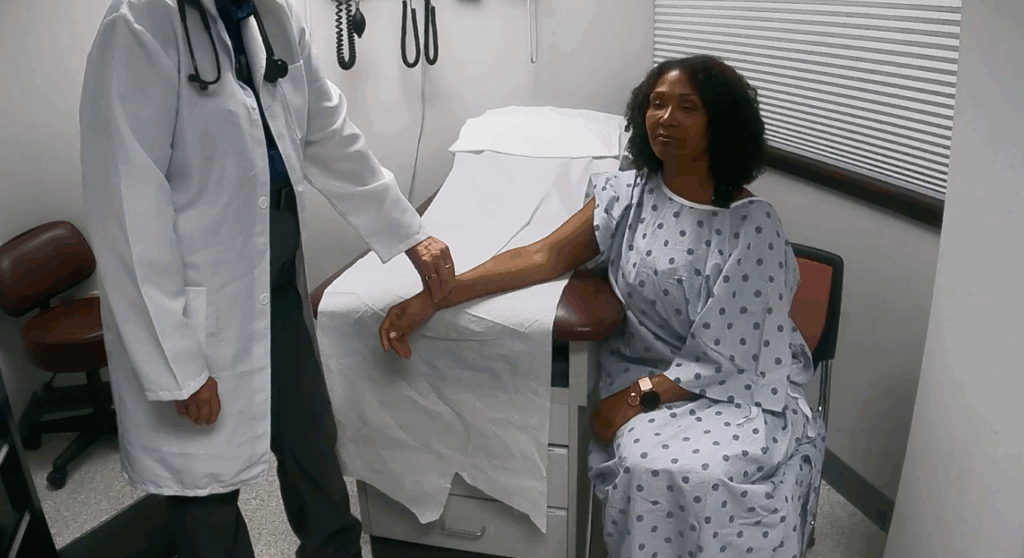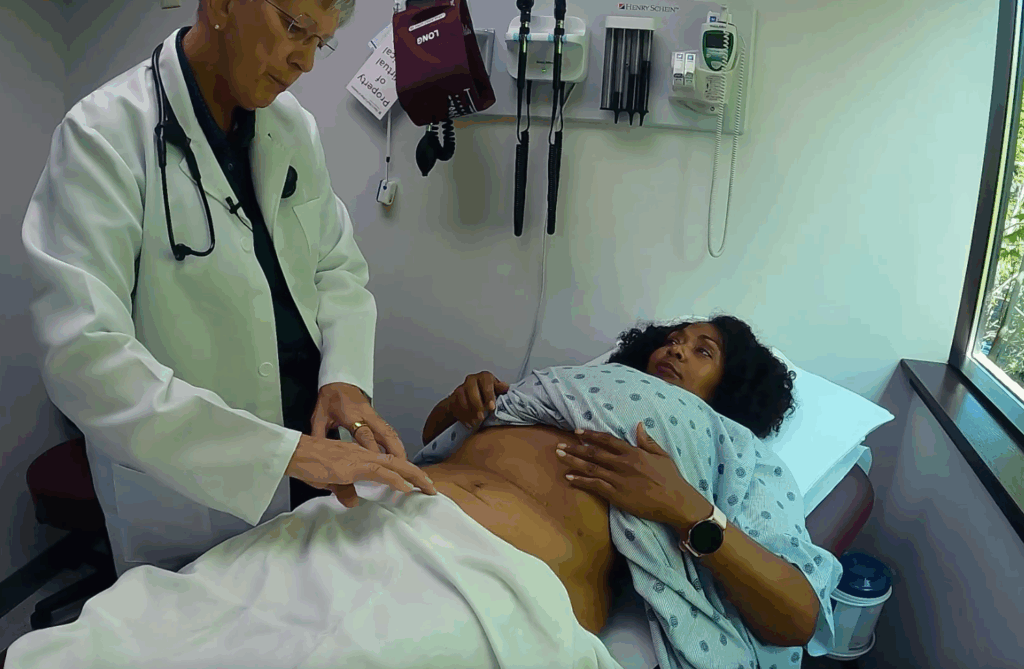The ear
Optional reading Clinically Oriented Anatomy, 9th ed., Head chapter, Ear section through Auditory ossicles. The ear is the part of the head that contains the structures associated with the special sensations of hearing and balance. For descriptive and functional purposes, anatomists and clinicians organize the ear into three parts: external, middle, and internal. Figure 1. […]
Malignancies of the urinary system
See all of the Nephlix videos Custom animated narrations created by Dr. Mroch
MS1 Musculoskeletal Exam

MS1 Chest Exam

MS1 Cardiovascular Exam

Malignancies of the urinary system
MS1 Vital Signs

Crystalopathies and mimickers
Case study 1: Maksym Tap the arrow to view the case.Maksym, a 12-year-old boy with newly diagnosed high-grade B-cell lymphoma, is evaluated for severe nausea, colicky abdominal pain, and tea-colored urine that began overnight. He started combination chemotherapy 48 hours ago.Physical examination shows mild flank tenderness bilaterally. Laboratory studies reveal elevated creatinine and hyperuricemia. Urinalysis […]
MS1 Abdominal Exam

Neck fascia and triangles
Optional reading Moore, Clinically Oriented Anatomy, 9th ed., Fascia of neck section through Surface anatomy of cervical regions and triangles of neck. Surface features and landmarks The anterior neck (“neck proper” or cervix): Extends from the inferior border of the mandible superiorly to the clavicles and sternum inferiorly. The posterior neck (nucha or “nape”): Extends […]